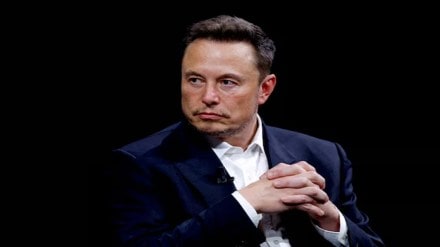By Nigel Green
Elon Musk has spent the last decade building himself up as the world’s most formidable entrepreneur, a genius who transcends industry, launching electric cars that change the entire industry, revolutionising space travel, and making AI-powered robots a near reality.
But lately, instead of focusing on building empires, he’s been spending more time playing defacto US Vice President, as a close Trump advisor, backing extremists, and feuding with world leaders on social media.
The numbers are in, and the damage is already showing. Tesla’s sales in Europe just plummeted by 45% last month. Market share is slipping. Demand is waning. Coincidence? Not likely.
This isn’t just about Tesla’s aging lineup or growing competition in the EV market. Musk has made himself so polarising, so politically radioactive, that he’s actively driving customers away from his own products.
For a man who prides himself on innovation, he seems shockingly unaware of a simple reality: when you make your brand all about your own personal politics, you shrink your customer base.
Musk once commanded near-universal admiration. Left, right, centre—no matter your politics, people loved a self-made billionaire who built rockets, championed clean energy, and took on the establishment.
Tesla was more than a car company; it was a movement. SpaceX was more than a contractor; it was a beacon of human ambition. Even Twitter, despite its controversies, was still seen as the playground of free speech and ideas.
But Musk couldn’t leave well enough alone.
Instead of staying above the political fray, where a man running multiple global companies probably should be, he’s turned himself into a full-time combatant in the culture wars. In the US, he’s embedded himself in the Trump administration’s inner circle, helping to defund and depopulate the government while aggressively shutting down aid programs.
In Europe, he’s openly backed Germany’s far-right AfD party, calling it the “best hope for the future” and personally congratulating its leader after an election win. And in Britain, he’s been throwing around unsubstantiated claims about a political cover-up on grooming gangs, even as fact-checkers scramble to point out that there is no evidence of any organized conspiracy.
It’s one thing for a billionaire to have political opinions. It’s another thing entirely for the CEO of a publicly traded company to make himself a hyperpartisan figure who alienates entire demographics of his own customers.
Tesla’s declining sales in Europe aren’t just a bump in the road. They’re the first real warning sign that Musk is poisoning his own brand.
Consumers might have tolerated the occasional unhinged tweet. They might have laughed off the rants about “wokeness” or dismissed his bizarre flirtations with conspiracy theories. But when he starts directly interfering in elections, throwing his weight behind political movements that millions of his customers actively despise, the pushback is inevitable.
Germany is Tesla’s second-largest market in Europe, and yet Musk is openly endorsing a far-right party that much of the German public sees as extreme and dangerous. France’s Emmanuel Macron—hardly a radical leftist—has already joined other European leaders in calling out Musk’s increasingly aggressive meddling in politics.
British consumers, many of whom might have considered a Tesla, are now watching Musk pick fights with Keir Starmer and push inflammatory narratives that undermine his credibility.
You don’t have to be a political expert to see where this is heading. The more Musk insists on making himself the main character in every ideological battle, the more he repels customers who just wanted to buy an electric car.
Musk’s Empire Is Built on Public Goodwill—And He’s Burning Through It
This is not the behavior of a man who understands the power of brand trust. Every major company Musk owns—Tesla, SpaceX, Neuralink, even X—depends on broad consumer enthusiasm. Unlike a defence contractor or a fossil fuel giant, these companies don’t thrive on government handouts or regulatory monopolies; they thrive because people actively want to support them.
But what happens when Musk squanders that goodwill?
Tesla is already facing increased competition from China’s EV industry, where companies like BYD are rapidly gaining ground. European automakers are catching up in battery technology and infrastructure.
Here’s the truth: the world doesn’t need another billionaire political influencer. It doesn’t need another Twitter troll with a God complex. It needs someone who can build things. Musk, at his best, was that individual.
(Author is deVere Group CEO and Founder)
Disclaimer: Views, recommendations, and opinions expressed are personal and do not reflect the official position or policy of FinancialExpress.com. Readers are advised to consult qualified financial advisors before making any investment decision. Reproducing this content without permission is prohibited.
